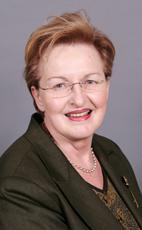Mr. Speaker, yesterday at the ethics committee, Karlheinz Schreiber testified that he had numerous meetings and discussions with Brian Mulroney and his ministers concerning the Bear Head project, including at 24 Sussex, Harrington Lake and the Prime Minister's Office.
Has the government provided all its documents on the Mulroney government's Bear Head project to Dr. Johnston, so that he is able to set proper terms of reference for the public inquiry?

